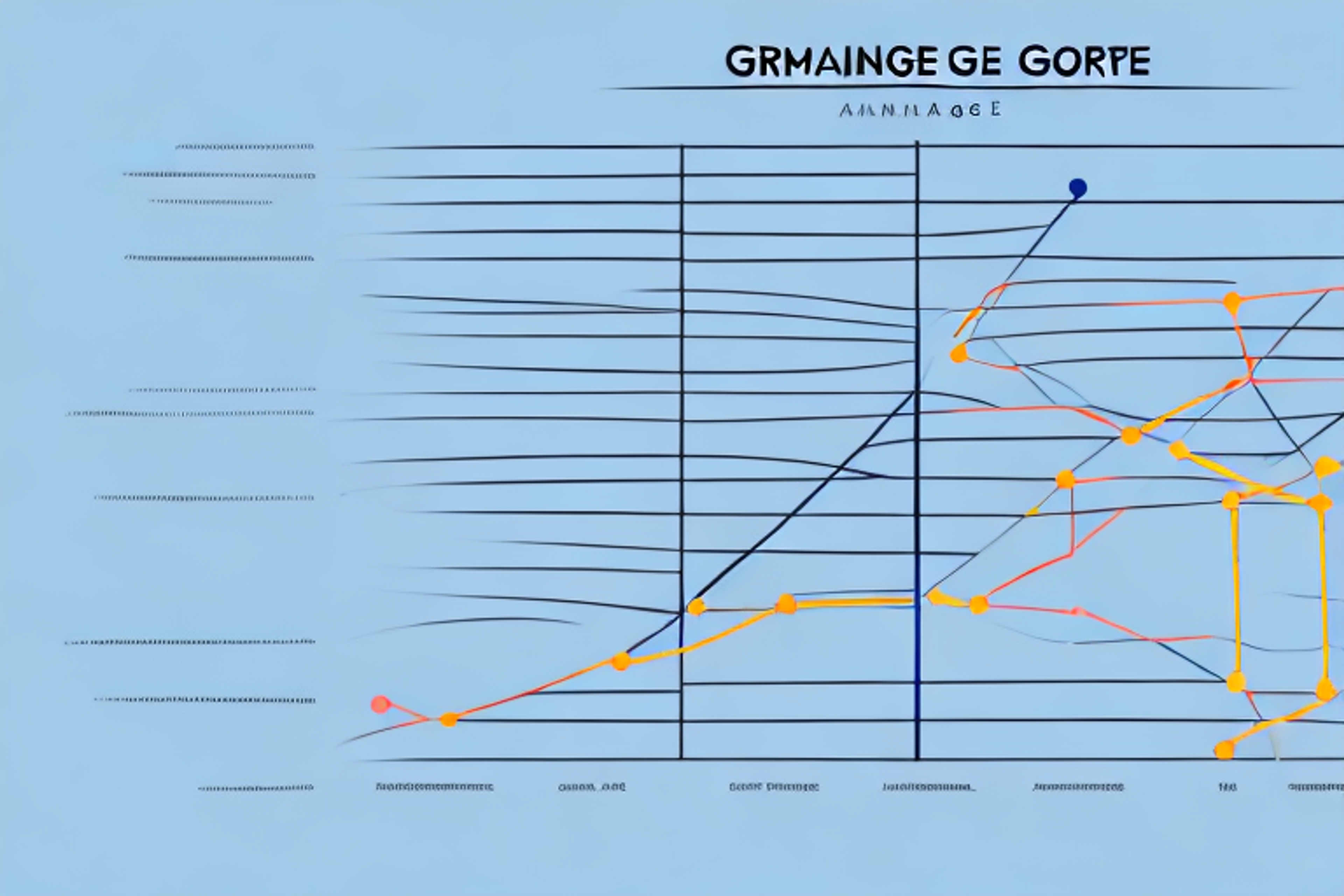Beginner's Guide to GMAT: What You Need to Know Before Starting Your Prep
If you're planning to take the GMAT, this beginner's guide is a must-read! Discover everything you need to know before starting your prep, from test format and scoring to study tips and resources.
Posted March 6, 2025

Free Event

Featuring Sujoy Kumar D.
Combinatorics for the GMAT & GRE - Part 1
Starting Saturday, March 29
1:30 AM UTC · 90 minutes

Featuring Sujoy Kumar D.
Table of Contents
If you're planning on applying to business school in the near future, taking the GMAT is probably on your mind. The Graduate Management Admission Test (GMAT) is a standardized test that measures your skills in verbal, quantitative, and analytical writing. Achieving a high GMAT score can help you gain admission into top-notch MBA programs, but preparing for the exam can be overwhelming. That's why this beginner's guide is here to help you understand the GMAT exam structure, common mistakes to avoid, top study materials and resources, tips for time management during the exam, and more.
Understanding the GMAT Exam Structure and Format
The GMAT is a computer adaptive test that assesses your ability in four sections: the analytical writing assessment, integrated reasoning, quantitative, and verbal. These sections are taken in the order specified by the GMAT, and you can't skip a section or go back to previous sections once you have moved on. The exam takes about 3.5 hours to complete, and you will receive your score immediately after finishing the test.
The analytical writing assessment section of the GMAT requires you to write an essay analyzing an argument. You will have 30 minutes to complete this section. The integrated reasoning section tests your ability to analyze and interpret data presented in various formats, such as graphs and tables. This section consists of 12 questions and you will have 30 minutes to complete it.
The quantitative and verbal sections of the GMAT are multiple-choice and test your ability in math and English language skills, respectively. The quantitative section consists of 31 questions and you will have 62 minutes to complete it. The verbal section consists of 36 questions and you will have 65 minutes to complete it. It is important to note that the GMAT is a challenging exam and requires thorough preparation to achieve a high score.
Common Mistakes to Avoid During GMAT Preparation
One common mistake that many test-takers make is waiting until the last minute to start studying. It's important to give yourself several months to prepare for the GMAT, especially if you haven't taken a standardized test in a while. Another mistake is relying solely on one type of study material. It's important to use a variety of resources, such as study books, online courses, and practice tests, to ensure that you're fully prepared for the exam.
Another common mistake that test-takers make is not taking enough practice tests. While studying the material is important, it's equally important to practice taking the actual exam. This will help you get familiar with the format and timing of the test, as well as identify any areas where you may need to improve.
Lastly, many test-takers underestimate the importance of time management during the exam. It's important to pace yourself and not spend too much time on any one question. If you're unsure about a question, it's better to make an educated guess and move on, rather than spending too much time on it and potentially running out of time for other questions.
Top Study Materials and Resources for GMAT Prep
There are a variety of study materials and resources available to assist you in preparing for the GMAT. Some popular study books include "The Official Guide for GMAT Review," "Manhattan Prep GMAT Strategy Guides," and "Kaplan GMAT Prep Plus." Online courses, such as those offered by Veritas Prep and Magoosh, can also be a helpful resource. Additionally, taking practice tests through GMATPrep software or other online resources, such as ExamPal or Kaplan, can provide valuable insight into your strengths and weaknesses.
Another helpful resource for GMAT prep is joining a study group or hiring a tutor. Study groups can provide a collaborative learning environment where you can discuss difficult concepts and learn from others. Tutors can provide personalized instruction and help you focus on areas where you need the most improvement.
It's also important to take care of your physical and mental health during GMAT prep. Make sure to get enough sleep, exercise regularly, and eat a healthy diet. Taking breaks and practicing relaxation techniques, such as meditation or yoga, can also help reduce stress and improve focus.
Tips for Time Management During the GMAT Exam
Time management is crucial during the GMAT exam. You'll need to pace yourself, as each section has a specified time limit. For example, the quantitative and verbal sections are each 62 minutes long, while the analytical writing assessment and integrated reasoning sections are 30 and 30 minutes long, respectively. One helpful strategy is to practice taking timed practice tests to get used to the pacing and pressure of the exam.
Another useful tip for time management during the GMAT exam is to prioritize the questions. Some questions may be more difficult or time-consuming than others, so it's important to identify them and tackle them strategically. If you're struggling with a particular question, don't spend too much time on it. Instead, move on to the next question and come back to it later if you have time. Additionally, make sure to keep an eye on the clock and pace yourself accordingly. Don't spend too much time on one section and neglect the others. By prioritizing and pacing yourself, you can maximize your time and increase your chances of success on the GMAT exam.
Analyzing the GMAT Scoring System: What Your Score Means
The GMAT is scored between 200 and 800, and your score is based on your performance in each section. Business schools use your GMAT score as a predictor of your potential academic success in their program. A high GMAT score can help you stand out in the admissions process, but it's not the only factor that business schools consider. Your undergraduate GPA, work experience, and extracurricular activities are also important components of your application.
The Importance of Practice Tests in Your GMAT Prep
As mentioned earlier, taking practice tests can be an important part of your GMAT preparation. Practice tests can help you become accustomed to the format and style of the exam, identify your strengths and weaknesses, and track your progress over time. When taking practice tests, be sure to simulate exam-like conditions as closely as possible to get an accurate representation of your abilities.
How to Develop an Effective Study Plan for the GMAT
Creating an effective study plan is key to achieving success on the GMAT. Start by setting a target score and creating a timeline leading up to your test day. Identify your strengths and weaknesses, and focus your studying on areas that require improvement. Schedule regular study sessions and practice tests, and give yourself ample time to go over the material. Remember to take breaks and give yourself time to rest and recharge, as burning out can hinder your performance.
Strategies for Mastering the Quantitative Section of the GMAT
The quantitative section of the GMAT tests your math skills, including algebra, geometry, and arithmetic. To succeed in this section, practice regularly, learn key formulas and concepts, and pay attention to detail. Additionally, utilize your scratch paper and calculator to help you work through problems more efficiently.
Techniques for Acing the Verbal Section of the GMAT
The verbal section of the GMAT assesses your grammar, reading comprehension, and critical reasoning skills. To excel in this section, read widely and actively, practice formal and informal writing, and review grammar rules. Additionally, focus on understanding the main ideas and the author's intent when reading passages.
Preparing for the Analytical Writing Assessment (AWA) Section of the GMAT
The analytical writing assessment section of the GMAT requires you to analyze an argument and provide a written response. To prepare for this section, practice outlining your response, arguing effectively and clearly, and proofreading your writing for grammar and spelling errors.
How to Stay Motivated and Avoid Burnout During Your GMAT Prep
Preparing for the GMAT can be a challenging and time-consuming process, which can lead to burnout and lack of motivation. To stay motivated, break down your studying into manageable chunks, and reward yourself after completing a task. Additionally, find a study group or partner to hold you accountable and offer support throughout the process.
Understanding the Impact of Admissions Consulting on Your GMAT Score
Admissions consulting can provide valuable guidance and insight into the business school admissions process. Consultants can help you with your application, interview skills, and overall strategy. However, keep in mind that admissions consulting services can be costly, and a high GMAT score may not guarantee admission into a top MBA program.
The Role of Networking in Getting into a Top MBA Program After Your GMAT
Networking is an important aspect of the application process for business school. Attend job fairs, informational interviews, and industry conferences to get to know the admissions officers and alumni of your target schools. These contacts can provide valuable insight into the program and help strengthen your application.
In conclusion, preparing for the GMAT can be challenging, but with the right approach and resources, you can achieve success. Be sure to give yourself ample time to study, use a variety of study materials and resources, and stay motivated throughout the process. Remember, a high GMAT score is just one aspect of your business school application, so don't forget to focus on your GPA, work experience, and extracurricular activities as well.











